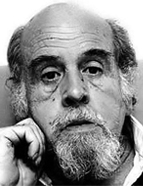

In one of his first speeches, given in Lisbon in 1998, he began by noting that, upon taking office as President of the Council of Ministers in September 1968, Marcelo Caetano said, in one of the most anticipated political speeches of this century, that he did not want to see 'the Portuguese people divided among themselves as enemies'. He developed this thought by stating that over the last two centuries of the history of Portugal, the Portuguese people had always acted divided and like enemies: during the Napoleonic wars; divided as enemies between absolutists and liberals, culminating in a civil war that, with its consequences and extensions, ravaged the country from 1815 to 1851; and the list goes on... (1998-2008. Os dias de Portugal, 'The Days of Portugal', 2010, pp. 14-15) In other words, in a brief yet concise and crucial manner he traversed the history of Portugal, seeking to justify the idea that the past is essential to understanding our present. In the same speech he stated, establishing the causal link between national history and individual history: "If he who fears the future is its most likely victim, he who fears the past also shall not win. We will be what we shall be, when we are able to assume what we were. Woe to he who repents what he was, because he that is what he still is. If this maxim applies to our individual history – not to call it small, because it is the only one that is great – it also applies to our collective history. As history teaches us, each time someone has wanted to start from scratch – a new man, a new society – he always ended up worse off than those who sought to overthrow themselves". (Ibid, p. 17).
In 2004, in the city of Bragança, he once again invoked the past in order to apply it to the present time when he quoted Francisco Manuel Alves, in a passage dating from 1912, to emphasise that the Abbot’s lament still held true in current-day Portugal: "By God! Let us cease to give, before the foreigner, the sad spectacle of a people who are unable to build their future and who do not appreciate the traditions of its past" (Ibid, p. 55). This historical perspective was also combined with his immense film culture. An example was in Viseu, in his speech on 10 June 2000. That same year, according to João Bénard da Costa, commemorated the centenary of the birth of director Luis Buñuel, who was thought to have filmed Tristana (1970) in Viseu, after a visit to the Portuguese city. This decision, as he explained, came about after incidents with censorship surrounding the debut of Viridiana (1961), and which made the Spanish director fear he would not be allowed to film in Spain. In his opinion, Viseu could take the place of Toledo, where the novella by Perez Galdos of the same name, and on which the film was based, was set (Ibid, p. 26).
